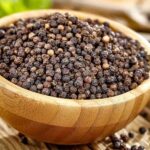Vietnam’s Seafood Exports: China Takes the Lion’s Share
In a recent announcement, the Vietnam Association of Seafood Exporters and Producers (VASEP) revealed that shrimp exports are projected to reach $3.9 billion in 2024, marking a 14% increase from the previous year. Notably, China (including Hong Kong) has surpassed the United States as the largest importer of Vietnamese shrimp, with revenues of $843 million.
Among the varieties of shrimp exported from Vietnam to China, white-legged shrimp accounted for 36.1%, while black tiger shrimp made up 12.2%. Most notably, the “other shrimp” category (mainly lobster) took the lion’s share with 51.7%, as Chinese consumers showed a strong appetite for Vietnamese lobster in 2024.
According to VASEP, China is currently the top market for Vietnamese lobster consumption, accounting for 98-99% of the total export volume of this “luxury seafood” item.
The surge in lobster, salmon, and king crab exports is attributed to the stable demand from China’s affluent consumers, while the mass consumer market is more susceptible to economic pressures, VASEP explained.
Lobster is not only a high-value export commodity but also boasts remarkable nutritional value.

Lobster: A Nutritious Delicacy with High Export Value
Nutritional Profile of Lobster
According to Healthline, a trusted health information website, lobster is a low-calorie food packed with essential vitamins and minerals.
A cooked lobster serving (145 grams) provides the following nutrients:
– Calories: 128
– Protein: 27 grams
– Fat: 1.2 grams
– Copper: 198% Daily Value (DV)
– Selenium: 190% DV
– Zinc: 53% DV
– Vitamin B12: 51% DV
As you may know, lobster is an excellent source of pure protein, highly regarded for its abundant protein content and low-fat levels.
Each serving of lobster provides up to 280 mg of eicosapentaenoic acid (EPA) and docosahexaenoic acid (DHA). These omega-3 fatty acids positively impact cardiovascular health and help lower blood cholesterol. The recommended daily intake of EPA and DHA is about 250 mg, as per the Dietary Guidelines for Americans.
Additionally, lobster is a rich source of trace elements such as copper and selenium. Copper plays a vital role in energy production and DNA synthesis, while selenium acts as an anti-carcinogen, protecting the body from chronic degenerative diseases.

Lobster: A Rich Source of Essential Trace Elements
Health Benefits of Lobster
Lobster is not just a culinary delight but also offers numerous health benefits due to its exceptional nutritional profile.
Protein Powerhouse
Lobster is abundant in protein and provides all the essential amino acids required to form protein. This means that the quality of protein from lobster can rival or even surpass that of milk, red meat, or soy.
Brain and Mental Health Booster
Omega-3 and vitamin B12 are crucial for brain and mental health. For instance, DHA is an important component of brain cell structure and is necessary for cell membrane function. Research indicates that a deficiency in omega-3 can accelerate brain aging.
Studies also show that individuals with higher omega-3 intake tend to have a lower risk of stroke, depression, dementia, and Alzheimer’s disease.
Similarly, a link has been established between vitamin B12 deficiency and cognitive decline, Alzheimer’s disease, and Parkinson’s disease. Some studies suggest that vitamin B12 supplementation can reduce the risk of cognitive decline by 20% and improve brain function in older adults.
Including lobster in your daily diet can, therefore, offer significant benefits for brain and mental health.

Lobster: A Brain-Boosting, Mood-Enhancing Delicacy
Cardiovascular Guardian
Numerous studies have demonstrated that long-chain omega-3s, such as EPA and DHA, can help protect against heart disease. Seafood and fish, especially lobster, are rich sources of these omega-3s and exhibit strong cardioprotective effects.
EPA and DHA can lower the risk of heart disease through various mechanisms. Research shows that they can reduce cholesterol and blood pressure levels and possess anti-inflammatory properties, which help prevent atherosclerosis, a major risk factor for stroke.
Cancer-Fighting Potential
Lobster contains not only omega-3 but also selenium, both of which exhibit anti-cancer effects.
A diet rich in EPA, DHA, and selenium may help protect against several types of cancer, including breast, colorectal, prostate, lung, stomach, liver, and ovarian cancer.
Laboratory and animal studies have indicated that the anti-inflammatory and anti-cancer properties of omega-3 can slow tumor growth and spread. However, further human studies are needed to fully understand these effects.
How to Tell the Difference Between Farmed and Wild Shrimp: The Super Simple Trick Sellers Don’t Want You to Know.
Introducing the ultimate guide to mastering the art of shrimp differentiation. With years of experience in the seafood industry, our expert is here to reveal the secrets to telling farmed and wild-caught shrimp apart. Learn the tricks of the trade and impress your guests with your shrimp-savvy skills at your next dinner party. It’s time to elevate your seafood game!
The Market that Stood the Test of Time: From a Riverside Temporary Setup to the Heart and Soul of Saigon
Ben Thanh Market, nestled in the heart of District 1, boasts a historical legacy spanning over a century. It is a vibrant hub, synonymous with the energetic pulse of Saigon. Beyond being a bustling trading center, the market captivates visitors with its delectable specialties and a myriad of quintessential Vietnamese souvenirs, beckoning explorers eager for a unique discovery.





































